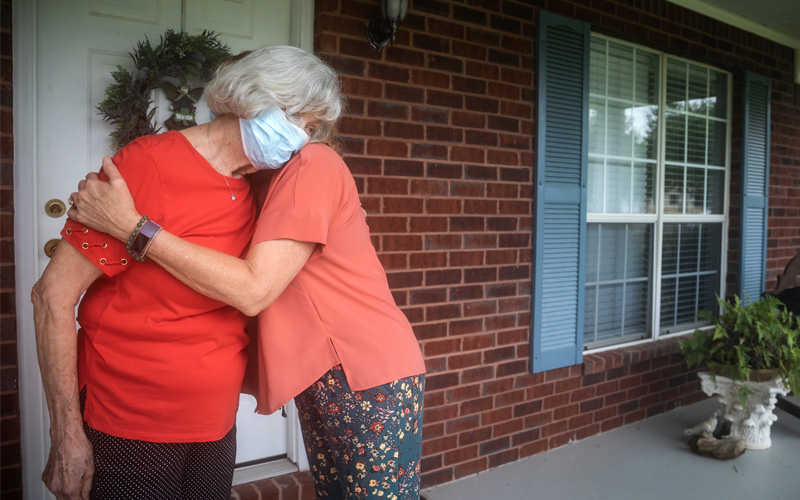It’s safe to visit family again, so many of us are stepping away from videoconferencing and making in-person visits to our older relatives. If you haven’t seen Mom, Dad, Grandma or Grandpa in a few months, it may be a good time to ask them questions about their overall health. The more you learn, the better you can help them reduce their risk for an all-too-common injury: falls.
The National Council on Aging (NCOA) reports that one in four older adults (age 65 plus) falls every year in the United States. “Every 11 seconds, an older adult is treated in the Emergency Room (ER) for a fall,” says Forrest Fernandez, MD. Trauma Program Medical Director with Grand View Health.
You can help assess your loved one’s fall risk—and keep them safe—by asking these 3 basic questions:
- How are you feeling?
Use this as a springboard to talk about a person’s overall health. Ask if an older relative is taking any new medications. “Some can cause dizziness or other conditions that could lead to a fall,” says Marie Dieter, RN, Trauma Program Manager at Grand View Health. Older people often use multiple medications, and drug interactions could also cause imbalance or dehydration.
- How is your vision?
Older relatives who wear glasses should have eye exams once a year. Make sure your relatives are keeping up with those exams and ask them if they are having any trouble seeing inside or outside the house. Improving the indoor lighting by adding lamps or nightlights may help
- What are you doing for exercise?
Staying active doesn’t increase the risk for falls. In fact, it decreases it, because regular exercise helps people maintain their flexibility and balance at any age. Encourage older loved ones to walk, do water aerobics or other exercises that will keep them strong.
If you’re visiting older relatives at their house, take a walk around and check out the surroundings. Some things to watch for:
- Throw rugs – Make sure any rugs are secured with double-sided tape. If not, recommend your older relative remove them.
- Stairways – Check indoor and outdoor steps for any erosion, cracks, wear or tear, and make sure the railings are sturdy.
- Hallways and walkways – Make sure they’re free from clutter.
- Bathroom – You may want to recommend non-slip pads for bathtubs or grab bars for toilets if your older relative is having trouble walking or uses an assistive device.
If you see fall risks in the house—or if the answers to your questions raise concern—have an open and honest talk with your loved one. Speak from a position of wanting to provide help, and assist them in any next steps, such as finding a contractor to install grab bars (or doing it yourself), accompanying them to doctor’s appointments or helping them talk to their doctor about their medications.
Grand View Health’s Emergency Department was the first in Pennsylvania to receive accreditation as a Geriatric Emergency Department by the American College of Emergency Physicians. “And while we have the extra resources to care for older adults in our ER, we’d rather see you stay safe from falls and injury,” says emergency medical physician Michael Prasto, MD, with Grand View Health.
Learn more: Get 12 questions to learn how to reduce fall risk in this article from the National Council on Aging.

